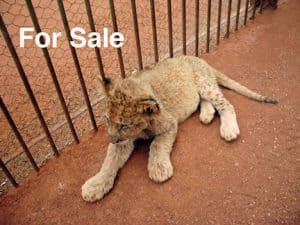Trading lions
Fewer wild lions exist on Earth than there are seats in
our shiny new football stadium in Nelspruit, so I
count myself blessed every time I see one, even if it
is a manky old male lying down in the shade of a tree!
If you have not recently spent
time with wild lions – get out there and do it.
Now, the fate of a few thousand captive bred lions
hangs in the balance pending the outcome of a local
Relative size of the sun compared to Mu Cephei
court case in which the future of the canned lion hunting industry is being weighed. Essentially, the government
wants to shut down the canned lion industry, and the breeders (who want to keep it going) have launched a last
last-ditch legal challenge against this. Depending on the outcome of the case, any of the the following scenarios
are possible:-
the industry goes underground as it was before, around 5000 captive lions get humanely euthanased as being excess to requirements,
the government makes a concession to allow the last animals to be hunted or otherwise bought,
the breeders convert their lions into bone meal and export it to China.
David Newton, Johannesburg-based head of the international wildlife trade monitoring network Traffic, says in theory
there is nothing to stop lion products being traded legally under the provisions of CITES. Lions are classified under
Cites Appendix II, which affords a lower level of protection than is given to the more endangered Asian tiger,
which falls under Appendix I. “Some traders don’t follow the animal rights view. For them it is just another commodity…
trading in lions would not be any different to trading cows”.
Article by Malcolm Douglas: Issue 55 – July 2010 Page 5
Enviroskills – Keeping Guides on Target



